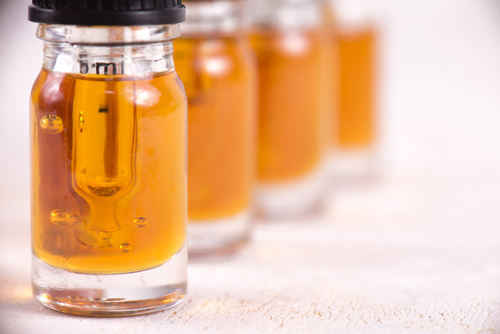
Interest in CBD oil has exploded in recent years, thanks in part to the many success stories surroundings its use. But as the market for CBD oil increases, so too do the number of lesser quality products. This isn’t helped by the fact that the industry remains largely unregulated, with no standards for marketing, quality control, or consistency. That’s why we put together this handy list of 10 signs of quality when buying CBD oil.
Table of Contents
- A quality CBD oil will have undergone safe extraction methods.
- That includes the extraction of the whole plant.
- Quality CBD oil undergoes strict testing in a lab.
- Milligrams per dose is the only percentage that matters.
- A CBD oil’s ingredients should be clearly labeled.
- There should be less than .03% THC.
- Be wary of extra ingredients.
- Look for high bioavailability.
- Don’t fall for a CBD oil that claims to cure everything.
- Finally, know where your CBD oil comes from.
- Additional Resources on CBD Quality
A quality CBD oil will have undergone safe extraction methods.
The safest extraction methods for CBD oil from hemp will involve supercritical CO2. This method ensures quality because it maintains the integrity of the entire plant, including all the beneficial terpenes. CBD oils of lesser quality will likely have undergone inexpensive extraction methods, many of which involve heat which then kills the desired nutrients.
That includes the extraction of the whole plant.
Aptly referred to as the “whole-plant extraction method,” this ideal extraction includes removing the entire plant from the earth: stalks, stem, seeds, all of it. Terpenes, sugars, flavonoids, and secondary cannabinoids — in short, the good stuff — is found throughout the entire plant, and should all make it into a quality CBD oil.
Quality CBD oil undergoes strict testing in a lab.
Suppliers of quality CBD oil will be upfront about the testing their product undergoes. Such testing should occur in a reputable third party lab, where it should be ensured that no heavy metals or other contaminants made it into the oil.
Milligrams per dose is the only percentage that matters.
A lot of lesser quality CBD oils will be labeled with the percentage of its CBD oil. While this might sound like it’s right, true quality will be labeled in the form of CBD milligrams per dose (or bottle). For example, a CBD oil may be labeled as only a 10% extract, but have been extracted via a safe extraction method including CO2. This 10% extract will always be higher quality than a 50% extract that was extracted via butane and heat.
A CBD oil’s ingredients should be clearly labeled.
If a CBD oil is quality, then there should be no reason to hide the oil’s list of ingredients. Plain and simple.
There should be less than .03% THC.
By definition, CBD oil should not include nearly enough THC to get you high. A quality CBD oil should have less than .03% THC in order to be most effective. In fact, this characteristic is what makes CBD oil derived from industrial hemp legal in all 50 states.
Be wary of extra ingredients.
Though some popular brands of CBD oil boast about their use of superfoods (moringa seems to be especially popular), these additional ingredients almost never provide the benefits they claim simply because there cannot be enough of said ingredient included in a quality CBD oil to make a difference.
Look for high bioavailability.
Bioavailability describes the amount of CBD that actually makes it into the body’s system. Though a lot more research needs to go into this, the general consensus is that CBD delivered under the tongue or through the rectum provide the highest bioavailability, followed by vaping and then finally, topical and ingestion. If you’re set on purchasing CBD capsules, increase bioavailability by taking them with nuts or yogurt.
Don’t fall for a CBD oil that claims to cure everything.
With more and more companies now selling cannabis products, many feel the need to resort to empty promises in order to lure customers. First, know the difference between CBD oil, hemp oil, and medical marijuana — they’re not the same. Secondly, if a product’s listed benefits seem too good to be true, they probably are. CBD oil certainly does have powerful healing effects, but only a small percentage of the research needed has been done thus far. Keep in mind that CBD oil is not a miraculous cure, and if you find one that claims to be, then that is not likely to be their only stretched truth.
Finally, know where your CBD oil comes from.
Hemp is a hyperaccumulator, meaning it naturally pulls nutrients — and toxins — from the ground in which it is grown, and a quality supplier will be up front about where its hemp comes from. For quality, search for hemp grown organically in an environment of low pollution. German-grown hemp receives a lot of positive attention, and for good reason. It’s often grown on pristine hemp farms and must be grown and extracted to satisfy the strict standards put in place by the European Union.
